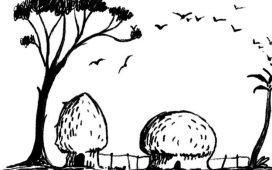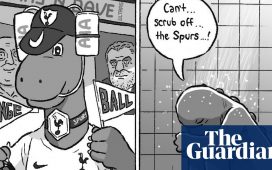“My daughter’s fiancé is old enough to be her dad and I’ll prove he’s a cheat”; “I hate my mum, she doesn’t know who my dad is” — two of the topics to feature on The Jeremy Kyle Show, axed this week after 14 exhausting years, following the death of a guest.
The daytime television programme, a grim British twist on America’s The Jerry Springer Show, invited mostly working-class guests experiencing personal turmoil such as infidelity or gambling addiction. The promise was to resolve their problems; what guests got instead was the dead-eyed Mr Kyle whipping up an emotional frenzy. In one episode, the suited compère goads a mother: “Why should [your son] give you the time of day? What are you worth? You were a selfish mare . . . You come out here with self-pity?”
It seems shocking in retrospect that it took a tragedy to bring to an end a show intent on ridiculing and demonising vulnerable people. But it did. Steve Dymond died about a week after appearing on the show and failing a lie-detector test, supposedly indicating he had been unfaithful to his girlfriend.
It wasn’t as if the show hadn’t been criticised before. Twelve years ago, a judge described it as “a morbid and depressing display of dysfunctional people who are in some kind of turmoil . . . a human form of bear baiting which goes under the guise of entertainment.”
Tomas Chamorro-Premuzic, a psychologist who worked on the reality TV show Big Brother in its early years, says viewers are drawn to misery and conflict. “There is something cathartic about seeing the emotional redemption of people. Other people’s suffering makes us feel better about our lives.”
Soon after the programme was dropped, a parliamentary inquiry was announced looking into the psychological pressure on participants of reality TV shows. The problem was not restricted to Jeremy Kyle. Two young people died after appearing on Love Island, a programme in which a group of attractive, single men and women are encouraged to couple up in a holiday villa in the hope of winning a cash prize.
Reality TV can be brutal. I once interviewed alumni of The Apprentice, the show in which would-be entrepreneurs compete to be mentored by British mogul Alan Sugar. One man was labelled a “disaster”. After being “fired” by Lord Sugar, he found himself virtually unemployable in his old line of work, and instead had resorted to taking odd jobs on building sites.
Mark Borkowski, publicist and author of The Fame Formula, says celebrity can be “toxic”. Those who work in TV forget how daunting it can be in front of the camera. Some come out shattered: “It’s like they’ve been hit by a car.”
It is heartening that production companies and broadcasters might now shape up their acts. But their efforts still feel quaint. Today’s media landscape is very different from that in which The Jeremy Kyle Show grew. Clips circulated on social media are available online long after a programme’s credits roll. There is also a secondary market: an industry of vloggers reviewing montages of clips.
In any case, who needs to be invited into a TV studio to broadcast personal problems these days? Far easier to just get out our phones and overshare on social media.
For a time, there was a boom in personal online essays written, typically, by young female writers trying to get a professional break. In an essay that looked at the so-called “first-person industrial complex”, an editor describes being inundated with articles on “eating disorders, sexual assault, harassment, ‘My boyfriend’s a racist and I just realised it’.”
Can it be that, as the journalist Jon Ronson once put it, “the smartest way to survive” in such a world is to go back to being voiceless?














